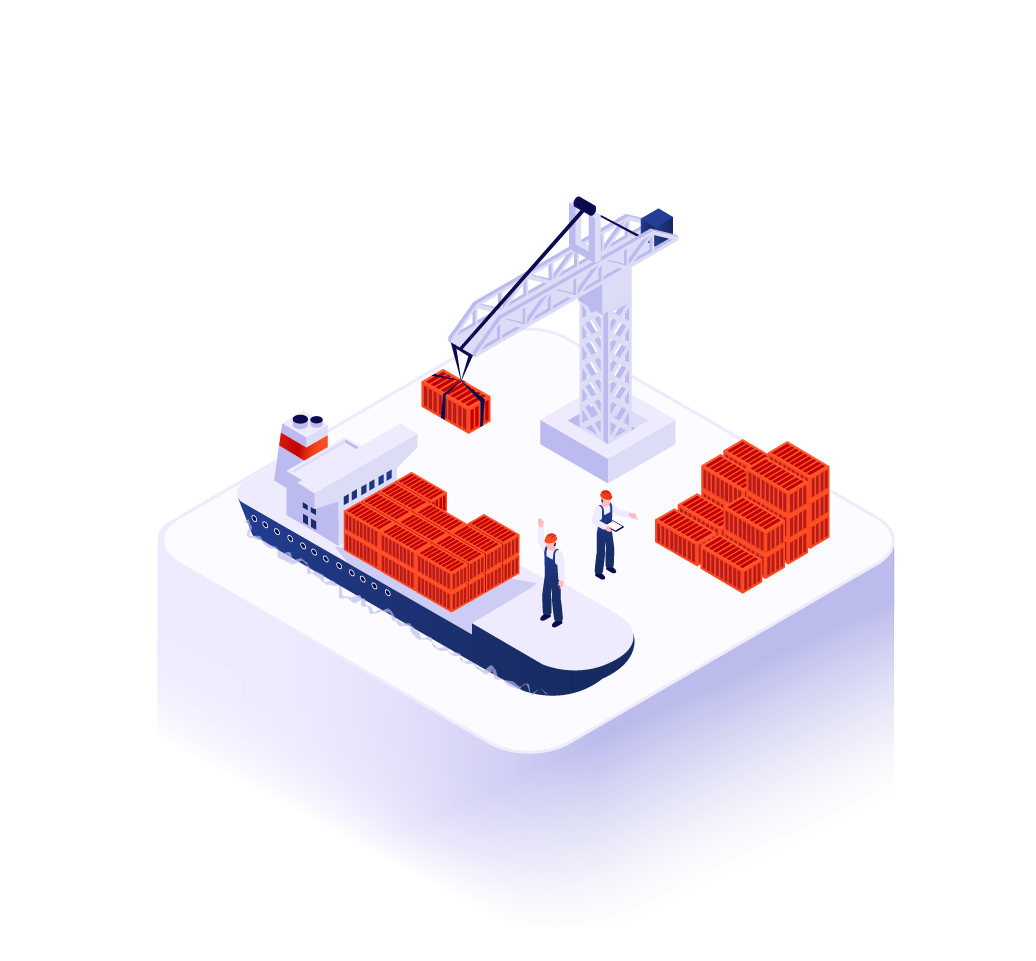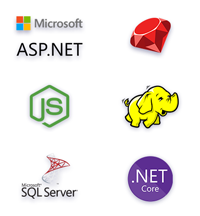Containerization
Is a major trend in software development
Do you need to enable your software development teams to act promptly, deploy software productively, and operate at an extraordinary scale? Need to make operational teams focus on the control of production environments, infrastructure, agility, eventually, ensuring that the applications are delivering perfectly and without interruption for the end users?
Discover undepictable and undeniable capabilities of Docker containerization with our expert team of DevOps engineers.

What is containerization in DevOps?
Containerization is a lightweight alternative to full machine virtualization that involves deploying and running an application together with all of its related configuration files, libraries, and dependencies required for it to run in an efficient and bug-free way across different computing environments, i.e. without launching an entire virtual machine (VM) for each app.
While there are Docker alternatives (CoreOS rkt, LXC, Mesos containers etc), Docker is still de-facto standard these days. It comes first in mind when someone talks about containerization, and the reason why it is so popular is simple: ease of use, portability and flexibility. Also, with constant developing of the orchestration tools like Kubernetes, Docker Swarm, AWS ECS etc, deployment of applications in containers becomes more easy, fast and mature.
Containers are able to run virtually anywhere
Any App

Any OS

Anywhere

Difference between Virtualization and Containerization

Сontainers are preferred when instant boot and portability are required. An application can be split into modules based on its operation and each such operation can be separately designed.
Containers work only as long as the applications run on the same OS. When you need to use different applications that would run on different operating systems then it’s time to consider the virtualization. Virtual Machines provide a reliable solution, better security.
Whatever you need, either it’s containers or separate VMs, our DevOps engineers will develop a win-win solution for each unique inquiry.

How Docker containers work?
Docker resembles virtual machines in terms of a similar resource isolation and allocation benefits, but there is no need to create a whole new virtual operating system. Containers can work on the same Linux kernel as the system they’re running on. Docker is extremely helpful for DevOps as it helps both developers and system administrators to work all along. Developers can focus on writing code and do not worry about system needs. In its turn, it provides flexible deployment on the server for the operation side.
What are the benefits of docker containerization?
Reasons we use Containerization
- Rapid application deployment: container is a big step up in terms of performance while reducing the size of the application.
- Portability across machines: Drawn up in a single container, all application dependencies can be transferred to another machine on container.
- Version control and component reuse: It is simple to make changes in the code, track modifications, and get back to the previous version of code, if needed.
- Sharing: Sharing your code with others using remote repository is simple.
- Lightweight: Container eliminates the heavy lifting involved with setting up virtual machines and makes sure your applications run seamlessly across multiple devices.
- Simplicity: It is easy to take some configuration, put it into a code, and deploy it without any rush. Since container can be used in a wide variety of environments, the requirements of the infrastructure are no longer linked with the environment of the application.
- Isolation and Security: Isolation between containers gives an excellent level of security.
- Scalability: Containers are helpful when you want to run a great number of apps on minimum servers.
Docker Container makes possible the development of a top-notch application with powerful background and modern technologies promoting DevOps approach.
Latest projects
We are anticipating to support you to join the membership of plenty of others taking advantage of Containerization! Ready to start?






